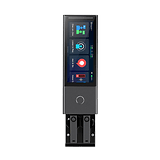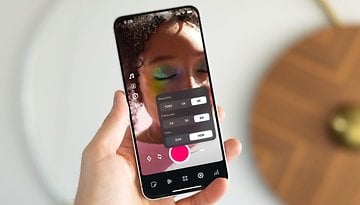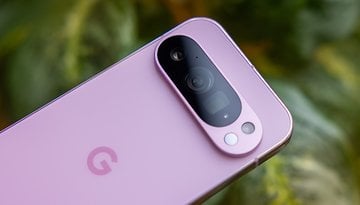We Tried a $700 X1 AI translator: Is it Better than Your Smartphone?
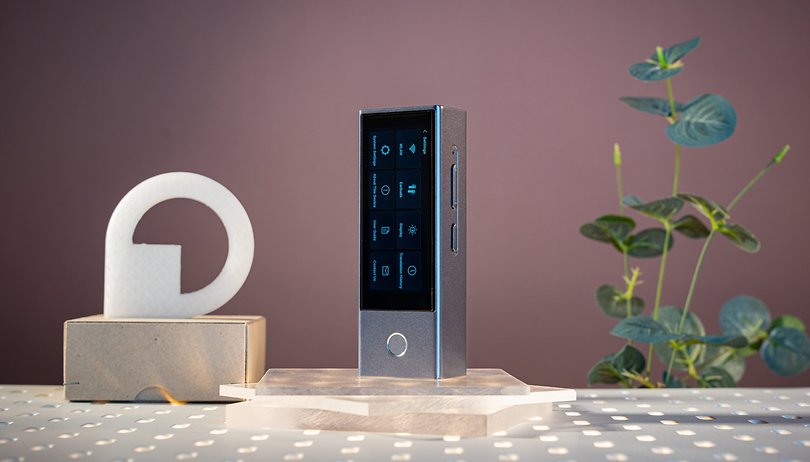

Whether iOS or Android, 2024 marks the year where every smartphone can provide reliable interpretation of multiple languages. The question then arises: why are there products like the X1 AI Interpreter Hub from Timekettle that costs$700? In this hands-on session for nextpit, I discovered the target market for the X1 A1! Let's begin, or should I say, "لنبدأ!"
Design & Display
The X1 AI Interpreter Hub is somewhat reminiscent of the legendary "Wiimote" from the Nintendo Wii console. This means you would normally hold the device vertically in your hand like a tennis racket grip, controlling it via the two buttons on the right, with another button at the bottom of the device and a touchscreen. Surprise! The manufacturer also included two true wireless earbuds in the case!
Measuring 13 x 4.5 x 3.5 cm, the Timekettle X1 AI Interpreter Hub is slightly larger than most smartphones. With its plastic chassis and cleverly stashed drawer for the earbuds, the workmanship is of high enough quality that you don't have to worry about breaking the device by accident.
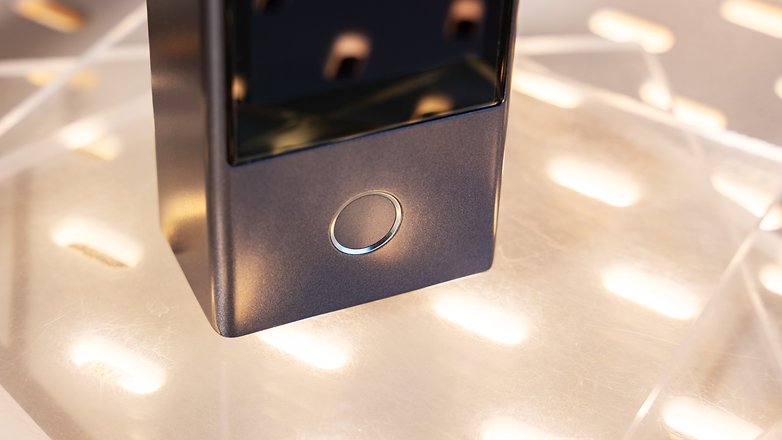
The chassis contains a 3.4" touchscreen in a ratio that is somewhat reminiscent of the 21:9 format found in current Sony smartphones. The position of the buttons on the right and at the bottom of the chassis suggests vertical use, but the entire menu of the X1 was designed for horizontal use. This is a little counter-intuitive and takes some getting used to. During the review duration, we had to repeatedly rotate the device.
The placement of two true wireless earbuds in the chassis of the X1 proved to be a stroke of genius. To remove them, open a drawer at the bottom. Thanks to the two charging contacts, the earbuds are also charged directly here but they don't fit quite so comfortably in the ear. Silicone attachments for better comfort and an optimized fit are included.
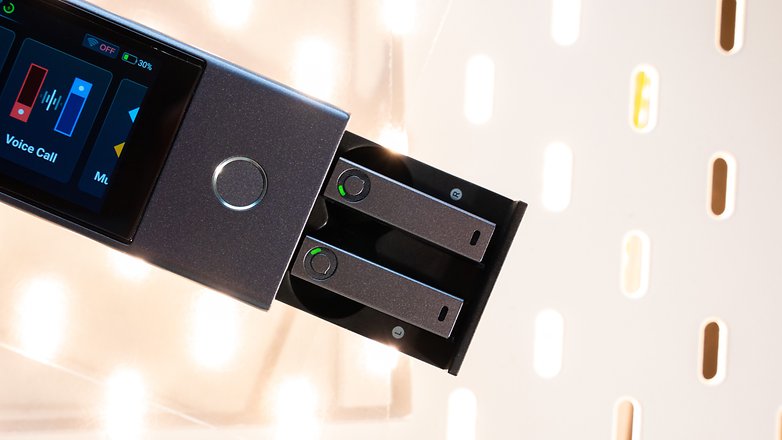
Overall, I would say that the design focused on efficiency. That's not a bad thing, but things like the inconsistent alignment of the display are a little annoying. Overall, however, the workmanship is fine and the only thing I miss about the device is an IP certification. Perhaps due to the drawer to store the earbuds, this is certainly not easy to achieve.
Operating system
Timekettle has its own operating system that cannot be expanded further with more via apps. Menus of the proprietary "X OS" are logically structured, and the X1 surprises with a responsive user experience overall. The X1 automatically installs updates via Wi-Fi; and the manufacturer sends over regular OTA updates through this method. Special functions such as alarm clocks, stopwatches, or other features we've come to expect in a standard smartphone are not available!
Technology and translations
The X1 can translate a total of 40 languages and understand 93 different accents. According to the manufacturer, the translation speed has also been significantly improved compared to other models. For use in corporate settings, up to 20 devices can be connected offline. Though this way and the two integrated earbuds, international meetings can be translated simultaneously.
While Timekettle left out some functions of its travel translators in the X1 (read the Fluentalk T1 Mini review), there are a lot of features that have been optimized for corporate situations. For instance, up to 20 X1 models can be linked together to provide interpretation at a local conference. Alternatively, you can use the Wi-Fi connection to set up a call with another X1 device.
However, calls can already be interpreted with just one device and this is where the integrated earbuds shine. When translating calls, two people can use one earbud each and have the other person's translation dictated into their ear. This mode impressed us with fast simultaneous translation and rather natural speech output. However, it is important to note that speech from both parties is picked up via the device itself. This is because the earbuds do not appear to have integrated microphones.
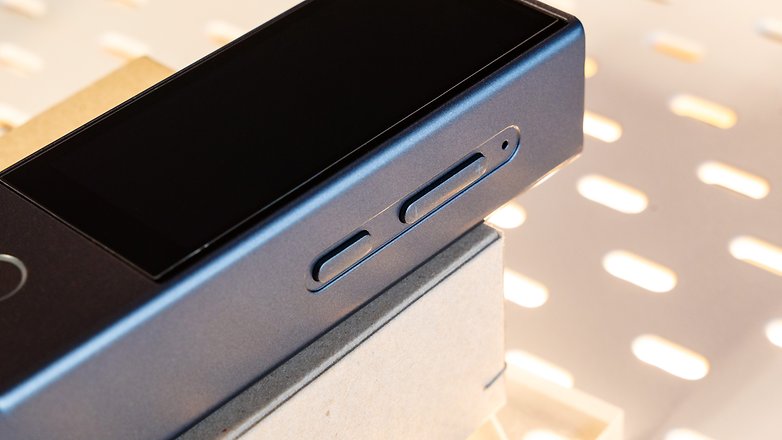
It is also a little annoying that natural speech reproduction can only be found in this mode. If you want to listen to a conversation in a foreign language and use both earbuds in the "Listen" mode, the computer voice sounds much more unnatural and "robotic". The quality of the translations is really good in some cases. However, it depends heavily on the clarity and talking speed of the people and the respective languages.
Timekettle was able to improve the speed of translations once again in June 2024. The "HybridComm 3.0" translation engine is said to improve translation processing time by 200 percent. This update is also said to have brought improvements in translation quality. Fundamentally, however, it is very welcome that Timekettle continues to improve the X1 for free.
In simple and clear discussion where the X1 had to translate between German and English, it worked really well after the update. However, it is noticeable that the translations do not include context. When asked "It's raining outside, where can I buy an umbrella?", the X1 translated "umbrella" as "parasol". Errors like this increase when you try more complicated phrases and sentence, including from German to Arabic. Here, the translations are sometimes so imprecise that you have to guess what the other party is trying to tell you.

Another disadvantage compared to Timekettle's travel translators is the lack of an integrated SIM card that allows translations via a mobile network. However, since the X1 only has a few offline languages where only English or Chinese can be translated, and you will have to find a Wi-Fi network or a mobile hotspot when you're out and about.
Overall, the X1 Interpreter Hub is particularly impressive in terms of functionality. The ability to hold conference calls and interpret conversations via the integrated headphones is really clever. Unfortunately, both the translation and voice playback quality fall short of expectations. Timekettle might want to improve this via future software updates.
Data protection
There is one more thing I would like to mention because of the heavy emphasis on corporate use — data protection! This is another reason to buy if companies fear translation apps may pass on sensitive information to advertising partners. Timekettle advertises three levels of data protection on its homepage. This means communication between the X1 and servers or other devices is encrypted. Unfortunately, the manufacturer does not specify which form of encryption Timekettle relies on.
Furthermore, translation data is only stored locally without relying on servers for backups. The other data protection-related information relates to the advantage that calls with the X1 can be made via headphones. As a corporate customer, I would like to see a little more information here so that data protection becomes a really valid reason to pick it up.
Battery life and charging
The battery life of the X1 is specified by the manufacturer as nine hours. In standby mode, it should last up to seven days. Interestingly, Timekettle integrated both a USB-C port and charging contacts meant for use with a charging station to juice it up. This means you can prepare the headphones for 120 minutes of use within five minutes. It takes two hours to fully charge the main unit.
The 9-hour runtime should be sufficient for intensive use on the go. The main unit of the X1 is charged via USB-C or charging contacts. For companies that want to provide their employees with several devices, the manufacturer has a charging hub that can accommodate up to five devices. Unfortunately, it is not possible to find out how much this is or where you can buy it.
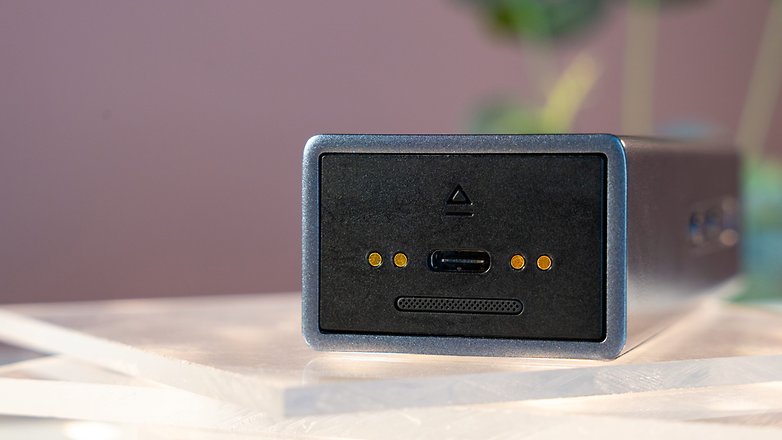
In reality, the manufacturer's battery life figures are realistic. The long standby time ensures readiness even if you forget to return the device to the charging station. During use, the battery life decreases noticeably, but it is in such situations when the integration of a quick-charging function by Timekettle becomes a stroke of genius.
Our final thoughts
Overall, the Timekettle X1 is more conceptual than functional. The operating concept and the idea of integrating earbuds into the chassis are really practical. Thanks to the proprietary operating system, working speed was also good and the processing time during translations was impressive. This contributed to a natural conversation flow when interpreting.
However, the translations are not always entirely accurate. The situation becomes more stark in challenging language pairs such as "German - Arabic" as well as in more complex dialogs, where the quality of the translations can drop sharply at times. Speakers also have to take regular pauses to provide the translator with more time to translate the recorded speech.
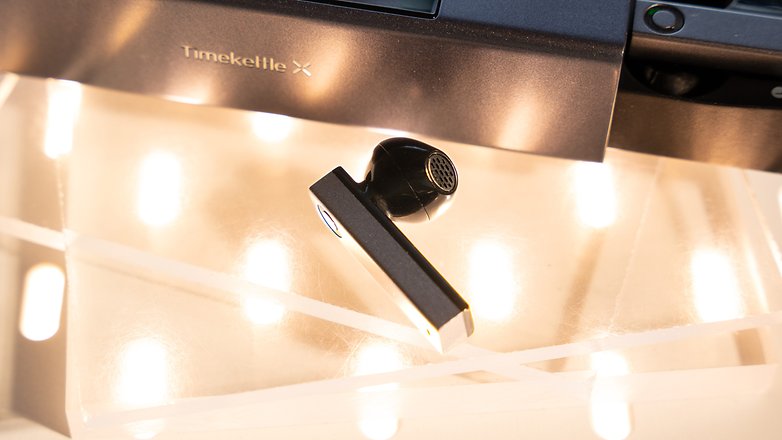
Timekettle also failed to provide precise information about the X1's data protection policies. I see this as a good reason for companies to buy it, as sensitive conversations remain protected. Information about calls being transmitted in encrypted form and stored locally on the device is nice to read, but the litmus test lies in providing precise information about the type of encryption it uses.
This makes the Timekettle X1 a really interesting device, but with an RRP of $700, it is quite expensive. I'm a little doubtful as to whether it actually offers any significant advantages over translation apps. However, if you were to compare the price of hiring an interpreter, the cost will be quickly amortized.
